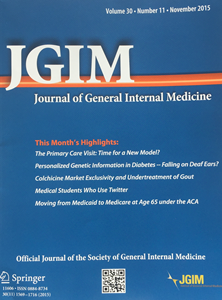Prior studies indicate that clinicians may be more likely to dismiss, ignore, or downplay the concerns of Black and female patients, compared to White and male patients. For example, focus groups of African Americans overwhelmingly identified the importance of being taken seriously and believed by clinicians as a core component of respect, whereas this theme never arose in focus groups with White participants. The phenomenon of clinicians disbelieving certain patients may be a manifestation of unconscious biases and stereotypes of women and minorities as lacking credibility. Studies have shown that race and gender biases are as prevalent in healthcare as in other settings. Because these biases are typically unconscious and subtle, their potential impact on clinical care can be difficult to detect. One place where biases may be detectable is in the medical record. Literature from the field of social psychology finds that attitudes can be reflected through people’s language. Thus, unconscious biases and stereotypes may reveal themselves in the language used to describe patients, including women and minorities, in clinical notes.
